Website security has become a core responsibility for anyone running an online presence, whether it’s a small business site, a blog, or a full-scale web application. Behind every page you see, there are scripts, databases, integrations, and server settings working together, and a weakness in any one of them can put the entire system at risk.
Attackers no longer rely on guesswork; they use automated scanners and bots that constantly probe websites, searching for outdated plugins, exposed files, broken authentication, or misconfigured settings. This means vulnerabilities don’t need to be obvious to be dangerous; hidden technical gaps are enough to cause serious damage.
Website vulnerability scanners help detect these risks early by examining a website from multiple angles, the same way a cyberattacker would. They highlight flaws that would otherwise go unnoticed, allowing developers and site owners to strengthen their defenses before anything goes wrong.
In this guide, we break down how these scanners work and explore more than fifteen powerful tools that help keep websites safe, stable, and resilient against modern threats.
What Are Website Vulnerability Scanners?
Website vulnerability scanners are automated security tools that scan websites, servers, and web applications for known weaknesses, misconfigurations, outdated software, and security loopholes. They help businesses, developers, and security teams detect threats early and prevent breaches, malware injections, data theft, and downtime. SCA scanning complements website vulnerability scanners by quickly pinpointing risky or outdated components, allowing teams to patch issues faster and reduce exposure to attacks.
What They Typically Detect
- Outdated CMS and plugins
- SQL injection & XSS
- Server misconfigurations
- Weak authentication setups
- Misconfigured firewalls or SSL
- Exposed sensitive files
- Insecure API endpoints
List of Best Website Vulnerability Scanners
1. Acunetix
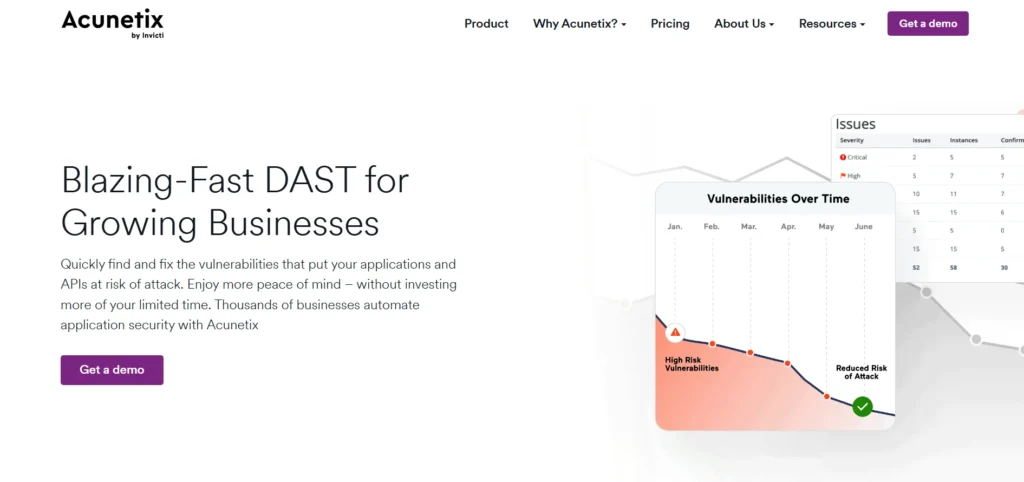
Acunetix is a powerful automated vulnerability scanner designed to detect complex security flaws across modern websites and web applications. Its advanced crawler analyzes large, JavaScript-heavy applications and supports SPAs effectively.
Acunetix is known for its speed and accuracy, making it suitable for both small teams and enterprises. The tool identifies over 7,000 vulnerabilities, including SQLi, XSS, SSRF, and RCE. It integrates seamlessly with CI/CD pipelines for DevSecOps workflows. The reporting dashboard helps teams prioritize and fix issues quickly and efficiently.
Website: https://www.acunetix.com
Key Features
- Advanced scanner for modern JS web apps
- Detects 7,000+ vulnerabilities
- CI/CD + DevSecOps integrations
- Intelligent vulnerability confirmation
- Compliance-ready reporting
2. Burp Suite Professional
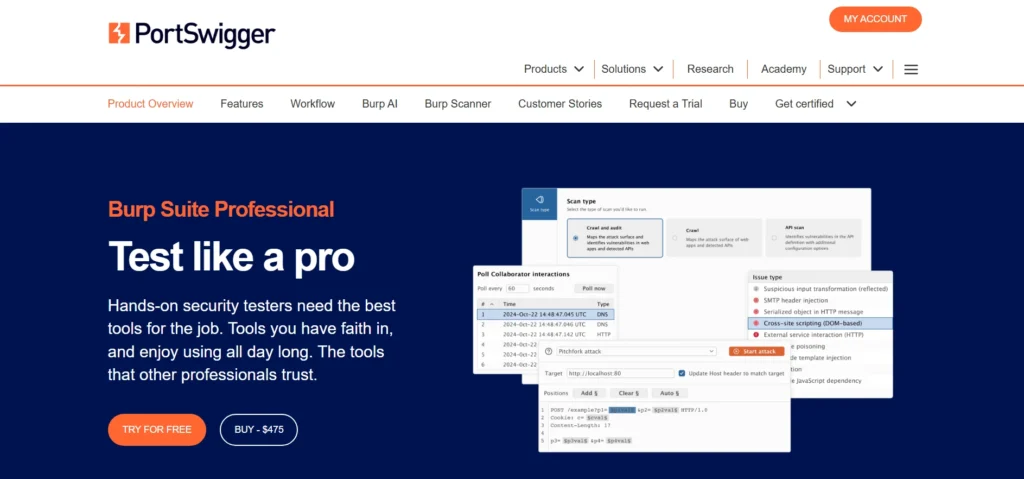
Burp Suite Professional is one of the most trusted tools among penetration testers due to its deep manual testing capabilities combined with automated scanning. The intercepting proxy allows full control over HTTP/S traffic for in-depth testing. Its active scanner identifies high-risk flaws with strong accuracy.
The tool supports extensive customization via extensions and scripting. Burp’s crawling engine handles complex applications accurately. It is ideal for testers who need precision, flexibility, and complete visibility across web interactions.
Website: https://portswigger.net/burp
Key Features
- Intercepting proxy for manual testing
- Powerful active & passive scanning
- Huge extensions marketplace
- Deep crawling for dynamic content
- Industry-standard for pentesters
3. OWASP ZAP
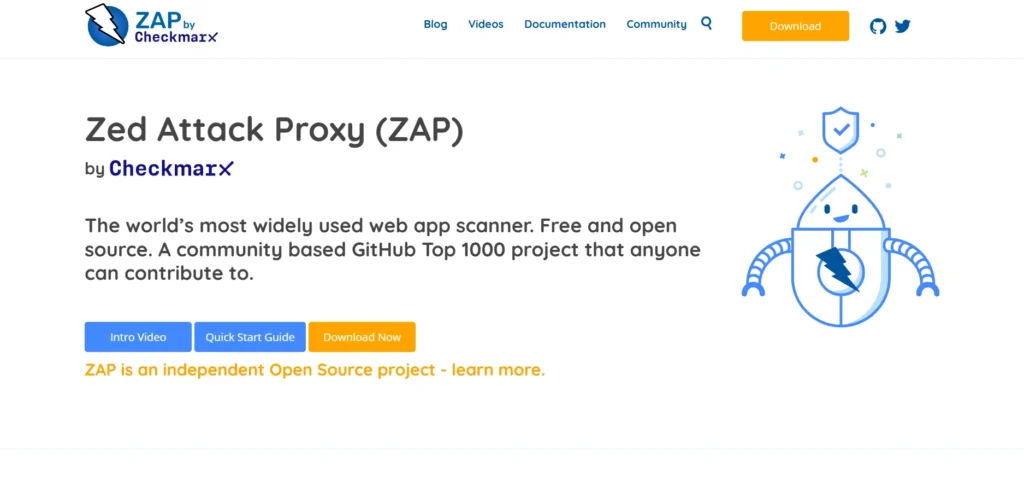
OWASP ZAP is a free, open-source vulnerability scanner backed by the global OWASP community. As one of the widely used Website Vulnerability Scanners, it offers both active and passive scanning suitable for developers, students, and security teams. The tool supports automation through APIs, making it easy to integrate with CI/CD.
Its plug-in marketplace helps extend capabilities as needed. Despite being free, ZAP provides enterprise-level functionality. It’s widely used as an entry-level and professional-grade scanner for learning and production use.
Website: https://www.zaproxy.org
Key Features
- Free and open-source
- Active & passive scanning
- Easy CI/CD integration
- Add-on marketplace
- Ideal for beginners & pros
4. Qualys Web Application Scanner
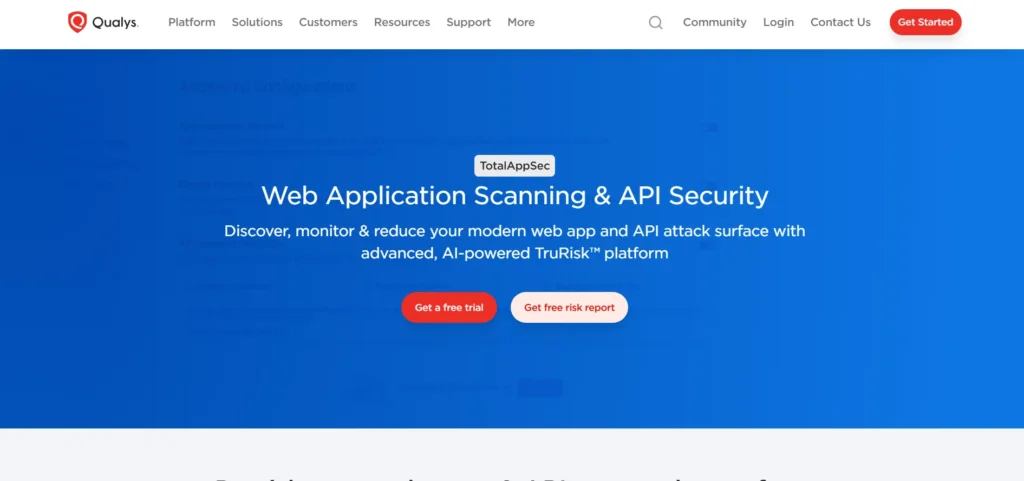
Qualys WAS is an enterprise-grade cloud scanner known for large-scale and continuous vulnerability assessments. It supports distributed application scanning without the need for local infrastructure. The system tracks vulnerabilities over time and provides trend analytics.
Qualys is trusted for high accuracy and compliance reporting. Its cloud-native design makes it scalable for thousands of applications. The dashboard centralizes management for global security teams.
Website: https://www.qualys.com/apps/web-app-scanning
Key Features
- Cloud-based scanning
- Enterprise scalability
- Rich compliance reporting
- Trend analysis & dashboards
- API-based automation
5. Nessus Professional
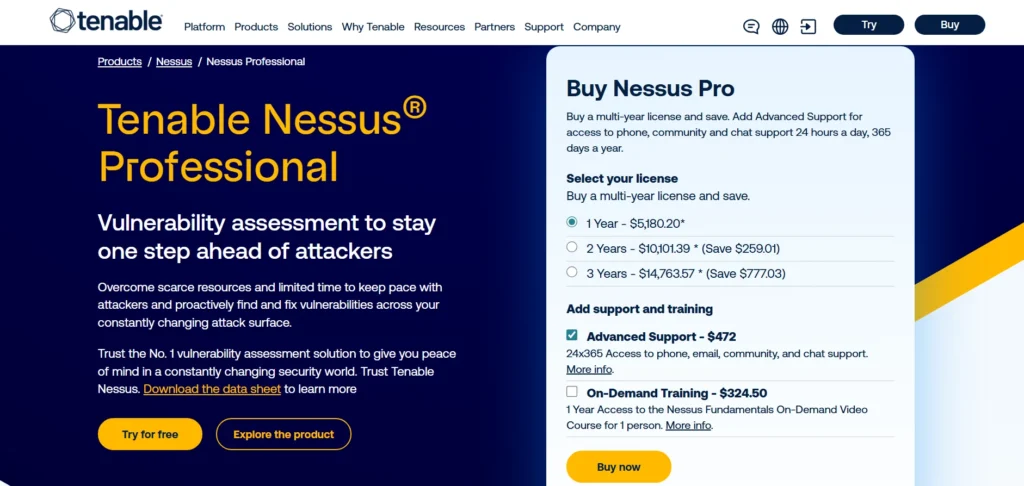
Nessus Professional is one of the most experienced vulnerability scanners and is widely used across the cybersecurity industry. While it focuses on server and network vulnerabilities, it also detects a wide range of website-related issues.
With over 180,000 plugins, Nessus provides unmatched coverage. It delivers strong remediation guidance for every issue. Nessus is suitable for organizations needing consolidated scanning across servers, websites, and infrastructure. Its accuracy and plugin depth make it a long-standing industry favorite.
Website: https://www.tenable.com/products/nessus
Key Features
- 180,000+ vulnerability plugins
- Detects configuration flaws
- Strong remediation insights
- Covers servers + websites
- Continuous scanning support
Also Read: Affirm Alternatives
6. Invicti (formerly Netsparker)
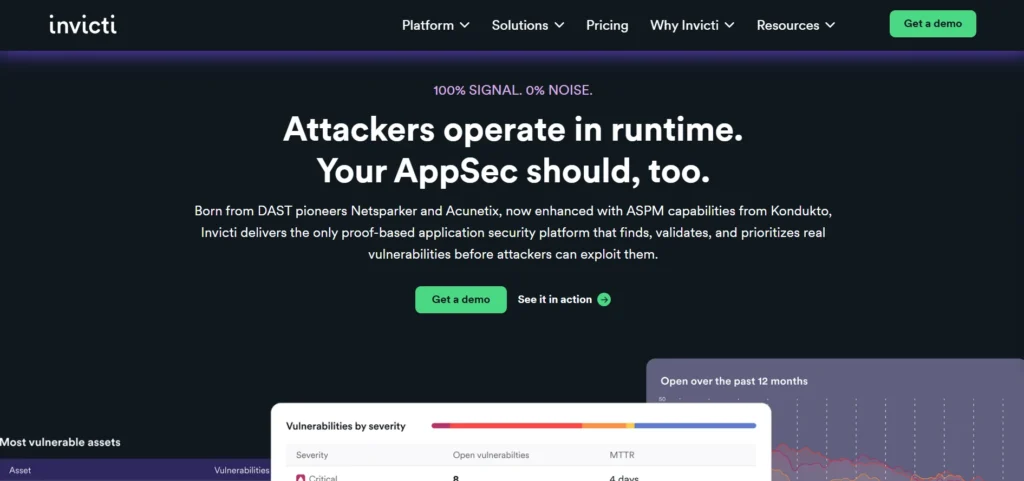
Invicti uses proof-based scanning, meaning it automatically verifies vulnerabilities by safely exploiting them in a controlled way. As one of the advanced Website Vulnerability Scanners, it drastically reduces false positives and saves developer time. The scanner is built for large-scale, complex enterprise environments.
It supports scanning hundreds of applications with automated workflows. Invicti integrates directly into CI/CD pipelines, making it ideal for DevSecOps teams. It offers strong compliance and audit-ready reporting.
Website: https://www.invicti.com
Key Features
- Proof-based vulnerability verification
- Almost zero false positives
- Designed for enterprises
- CI/CD & DevSecOps ready
- Automated remediation workflows
7. Detectify
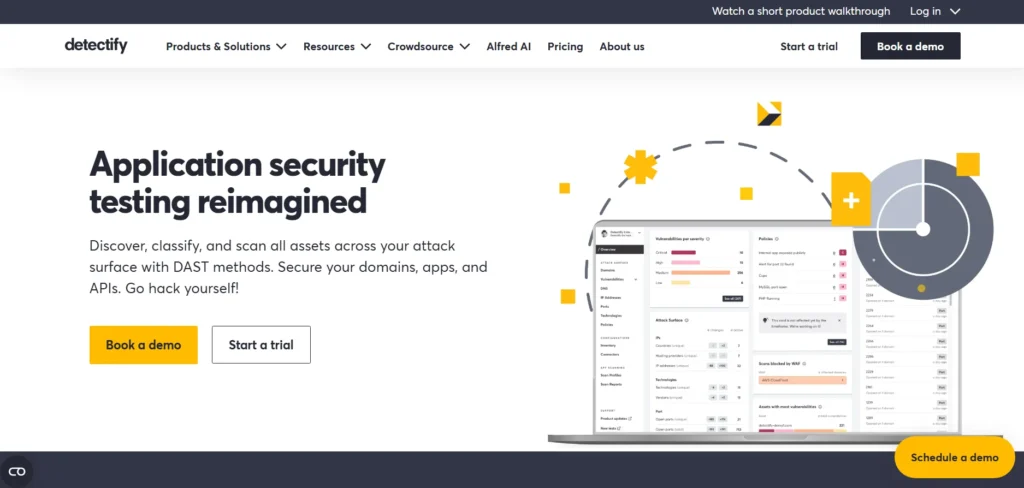
Detectify is a cloud-based scanner powered by ethical hackers around the world who continuously contribute new vulnerabilities. Its crowdsourced intelligence helps detect emerging threats early. The tool is simple to use and offers strong automation for startups and enterprises.
It automatically discovers assets and subdomains. Detectify specializes in CMS vulnerabilities, misconfigurations, and exposed files. It’s ideal for teams needing quick, accurate, and ongoing scanning.
Website: https://detectify.com
Key Features
- Crowdsourced vulnerability detection
- Automated asset discovery
- Strong CMS scanning
- Powerful cloud dashboard
- Detects emerging threats quickly
8. Rapid7 AppSpider
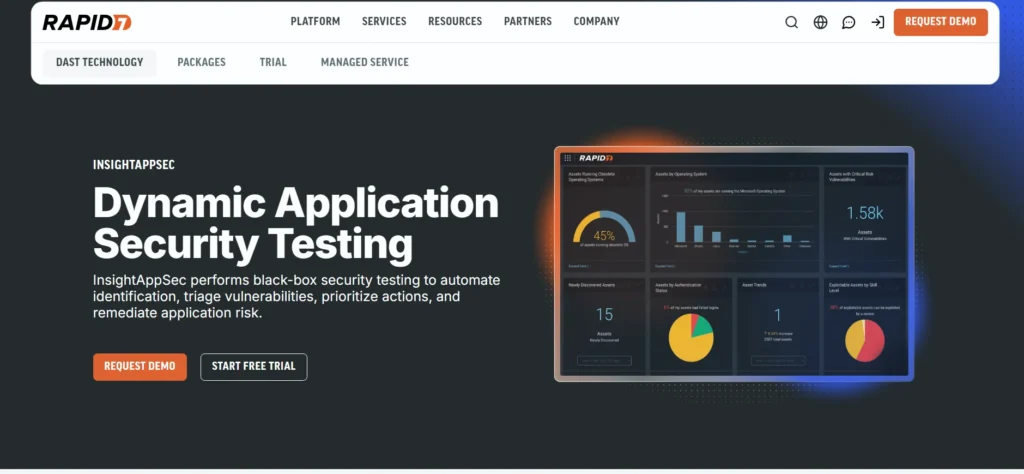
Rapid7 AppSpider is an advanced DAST tool designed for scanning modern web apps, mobile backends, and APIs. It analyzes dynamic application behavior to detect deep vulnerabilities. AppSpider supports complex authentication and multi-layered workflows.
The tool integrates with Rapid7’s Insight platform for enhanced reporting. It is suitable for organizations with diverse and large-scale application architectures. Its accuracy and comprehensive scanning capabilities make it a strong enterprise choice.
Website: https://www.rapid7.com/products/appspider
Key Features
- API and mobile backend scanning
- Supports SPAs and complex apps
- Deep authentication support
- Insight platform integration
- Enterprise-level reporting
9. Astra Security Scanner

Astra Security Scanner is designed for SMBs, eCommerce stores, and SaaS platforms that need strong security without complexity. It detects 800+ vulnerabilities and includes compliance checks for GDPR, PCI, HIPAA, and more.
Astra combines automated scanning with expert manual pentesting, offering a hybrid approach. Its dashboard is easy to understand for non-technical users. Astra also provides continuous monitoring to detect threats in real time.
Website: https://www.getastra.com
Key Features
- 800+ vulnerability tests
- Manual + automated hybrid testing
- Compliance reporting
- Ideal for SMBs and eCommerce
- Easy dashboard for non-tech users
10. SiteLock
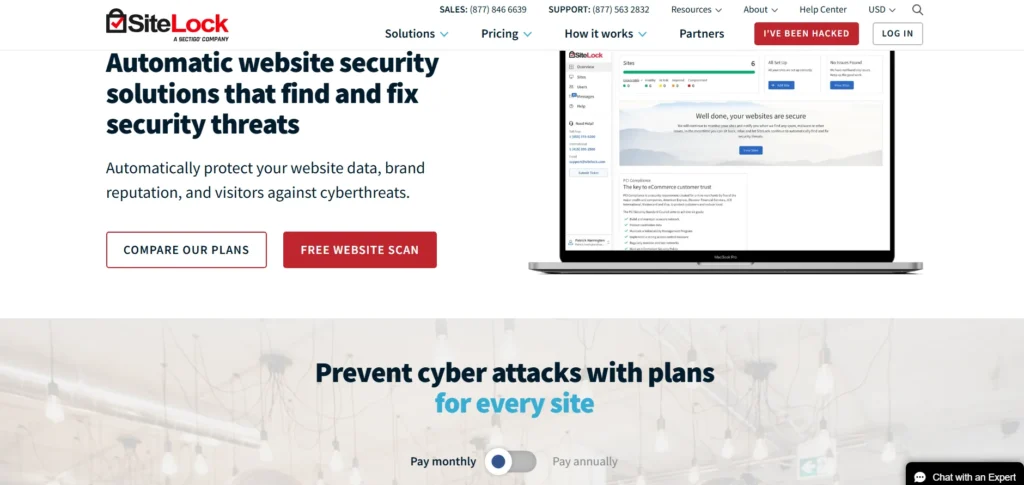
SiteLock is a popular tool in the category of Website Vulnerability Scanners for website owners who need malware removal, daily scanning, and real-time threat detection. It is used heavily by small businesses and hosting providers. The tool detects vulnerabilities in CMS installations like WordPress, Magento, and Joomla.
It also offers a web application firewall to block attacks. SiteLock helps protect brand reputation by monitoring blacklist status. Its automated scans make it beginner-friendly.
Website: https://www.sitelock.com
Key Features
- Daily vulnerability scans
- Malware detection & removal
- Strong CMS protection
- Web Application Firewall
- Blacklist monitoring
11. SSL Labs
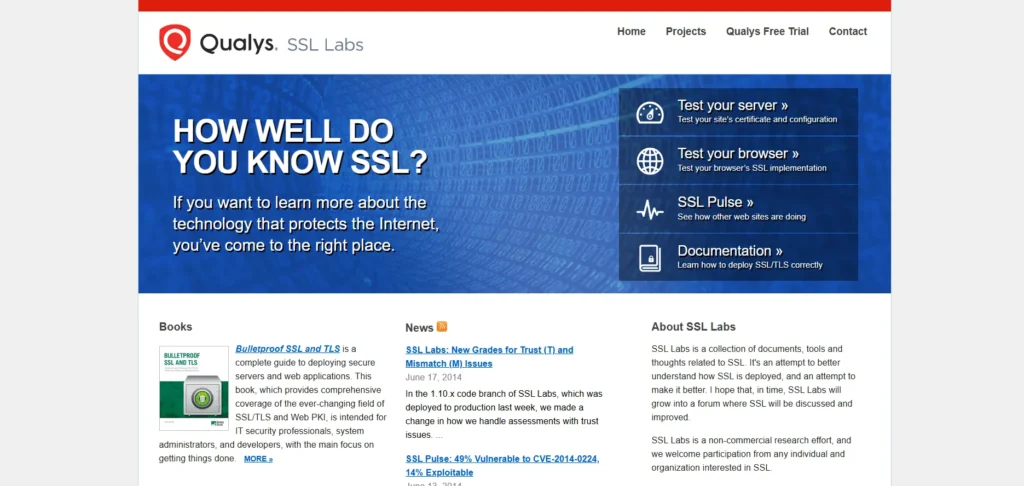
SSL Labs focuses exclusively on SSL/TLS scanning and is widely used by developers and security teams. It provides a detailed grading system that identifies weak ciphers, configuration flaws, and vulnerabilities like Heartbleed.
The scanner is fully free and publicly accessible. Its reports are highly detailed and perfect for audits. SSL Labs is essential for anyone managing HTTPS-enabled websites.
Website: https://www.ssllabs.com
Key Features
- Free SSL/TLS security testing
- Grading system for certificates
- Detects weak ciphers
- Identifies SSL protocol issues
- Industry-standard SSL audit tool
12. Intruder.io
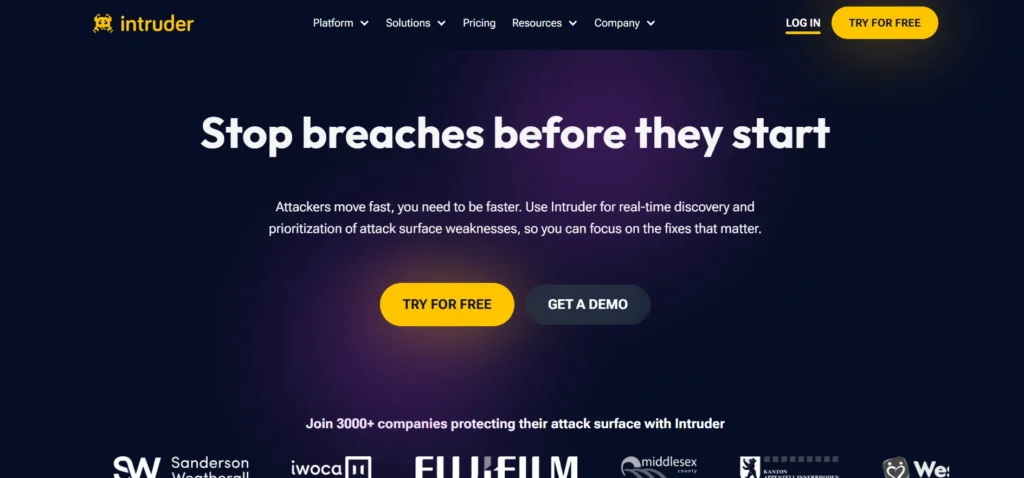
Intruder.io is a cloud-based scanner built for continuous monitoring of external attack surfaces. It automatically triggers scans when new threats appear globally. The tool integrates well with Slack, email, and Microsoft Teams.
It’s ideal for startups and growing businesses needing automated vulnerability management. Intruder discovers exposed services and misconfigurations instantly. It emphasizes simplicity combined with strong scanning coverage.
Website: https://intruder.io
Key Features
- Continuous attack surface monitoring
- Automated scanning triggers
- Easy integrations
- Cloud-based convenience
- Great for SMBs & enterprises
13. Snyk Web Vulnerability Scanner
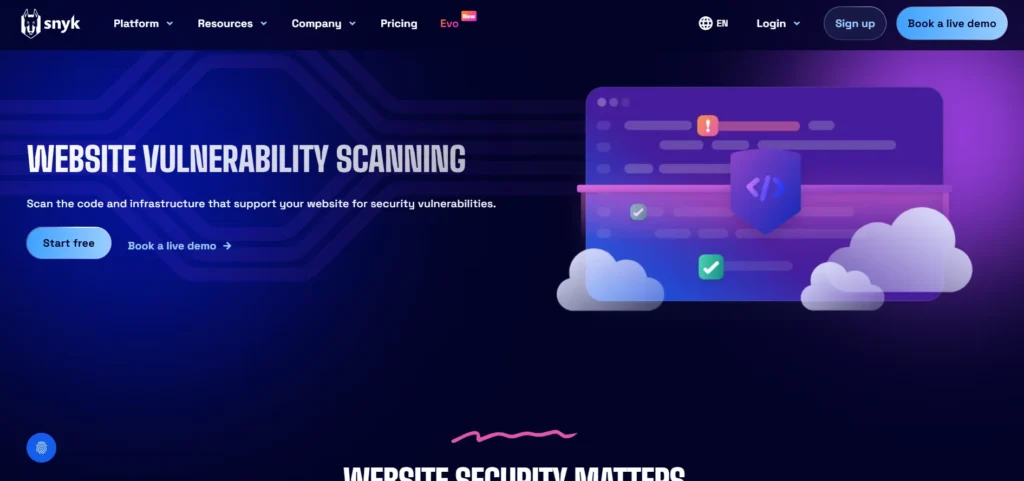
Snyk focuses heavily on developer-first security and integrates directly with repositories, CI/CD pipelines, and container systems. It scans application code, open-source libraries, and dependencies.
Snyk helps teams fix vulnerabilities with auto-generated pull requests. It also supports IaC and container scanning. The dashboard is designed for developers, making it easy to adopt across engineering teams.
Website: https://snyk.io
Key Features
- Developer-first security
- Code & dependency scanning
- Auto-fix pull requests
- CI/CD native integration
- Supports IaC & containers
Conclusion
Website vulnerability scanners are essential for protecting websites, applications, and online businesses from emerging cybersecurity threats. Whether you run a small website or manage enterprise systems, scanning regularly helps reveal weaknesses before attackers find them.
The tools listed above cover a wide range of needs, from free open-source scanners to advanced enterprise platforms. Choosing the right scanner depends on your website complexity, security requirements, and budget.
FAQs
1. What is a Website Vulnerability Scanner?
A website vulnerability scanner is a security tool that automatically checks your website for known weaknesses, misconfigurations, outdated components, and potential attack points.
2. How often should I scan my Website?
For active websites, weekly or bi-weekly scans are recommended. High-traffic or business-critical websites should be scanned daily.
3. Are Free Vulnerability Scanners Reliable?
Yes, tools like OWASP ZAP and Nikto are reliable, but premium tools provide deeper scanning, automation, and enterprise features.
4. Can Vulnerability Scanners Fix Issues Automatically?
Most scanners only identify vulnerabilities. Some tools suggest fixes, while a few (like Snyk) offer auto-fix features for code.
5. Do Small Businesses need Vulnerability Scanners?
Yes. Small websites are regularly targeted due to weak security and outdated plugins. Scanning helps prevent easy exploits.



